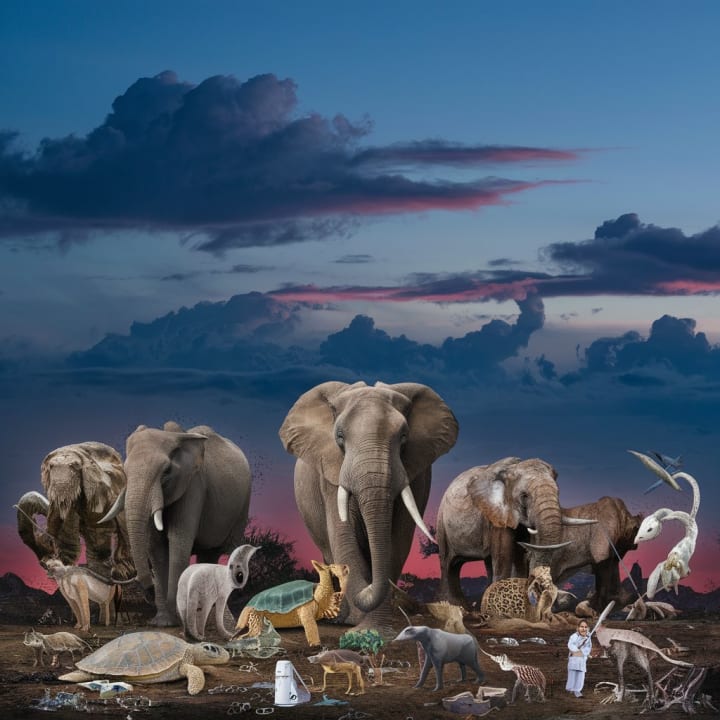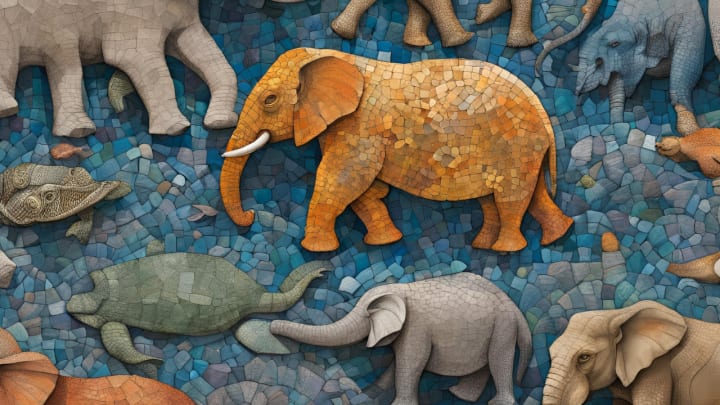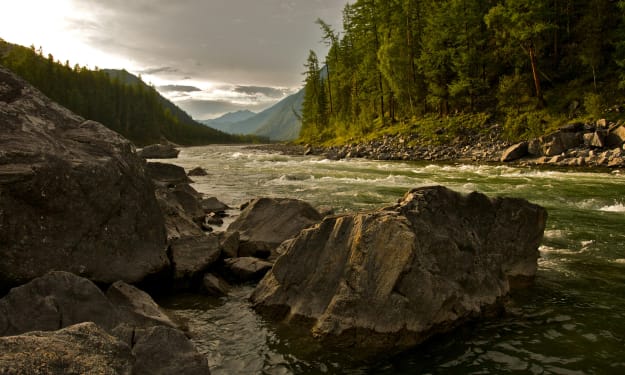The Sixth Extinction: An Unnatural History
A quick review of Sixth Extinction: An Unnatural History gives a sample of what the book covers.
Introduction
"The Sixth Extinction: An Unnatural History" by Elizabeth Kolbert explores the profound impact of human activity on Earth’s biodiversity, documenting how human actions have triggered a modern mass extinction event. Drawing on scientific research and field observations, Kolbert illuminates the interconnectedness of species extinction, climate change, and the ethical implications of humanity’s role in reshaping the planet. Through vivid narratives and compelling analysis, the book challenges readers to confront the urgency of environmental conservation and the consequences of ecological imbalance.

Chapter Summaries
1. The Sixth Extinction
Kolbert introduces the concept of mass extinctions, highlighting five previous events in Earth’s history when a significant portion of global biodiversity was lost. She argues that human activity has ushered in a new epoch— the Anthropocene— characterized by rapid species extinction. Through visits to locations around the world, Kolbert examines the impact of habitat destruction, climate change, and invasive species on vulnerable ecosystems, setting the stage for an exploration of contemporary extinction crises.
2. The Mastodon's Molars
In this chapter, Kolbert delves into the extinction of the American mastodon and other megafauna at the end of the last Ice Age. She explores the role of human hunting and environmental changes in shaping the fate of these giant creatures, drawing parallels with modern conservation challenges. Kolbert underscores the significance of understanding past extinctions as a lens for comprehending current biodiversity loss and the complexities of human-environment interactions.
3. The Original Penguin
Kolbert shifts focus to contemporary extinction threats facing species such as the Panamanian golden frog and the North American bat population decimated by white-nose syndrome. Through scientific expeditions and interviews with researchers, she examines the interconnected factors driving species decline, including habitat destruction, pollution, and disease. Kolbert underscores the urgency of conservation efforts to mitigate the loss of biodiversity and preserve fragile ecosystems.
4. The Luck of the Ammonites
Exploring marine extinctions, Kolbert travels to coral reefs and oceanic habitats impacted by ocean acidification and warming waters. She investigates the fate of marine species such as ammonites and corals, whose intricate ecosystems face existential threats from human-induced climate change. Kolbert discusses the cascading effects of marine extinctions on global food security and the imperative for sustainable practices to protect marine biodiversity in an increasingly warmer world.
5. Welcome to the Anthropocene.
In this pivotal chapter, Kolbert examines the concept of the Anthropocene epoch, defined by humanity’s dominant influence on Earth’s geology and ecosystems. She discusses the acceleration of species extinctions and environmental degradation due to human activities such as deforestation, industrialization, and carbon emissions. Kolbert challenges readers to confront the ethical dimensions of environmental stewardship and the collective responsibility to mitigate anthropogenic impacts on planetary health.

6. The Sea Around Us
Focusing on oceanic biodiversity, Kolbert explores the intricate web of life within marine ecosystems and the escalating threats posed by over-fishing, pollution, and habitat destruction. She profiles species like the great auk and discusses conservation efforts to protect marine biodiversity, emphasizing the interconnectedness of terrestrial and marine ecosystems in the face of anthropogenic pressures. Kolbert highlights the imperatives for global cooperation and sustainable practices to safeguard ocean health and resilience.
7. Dropping Acid
Kolbert investigates the phenomenon of ocean acidification driven by increased atmospheric carbon dioxide levels, which poses existential threats to marine organisms with calcium carbonate skeletons like shellfish and coral reefs. She examines scientific research and field studies on the ecological impacts of acidifying oceans, underscoring the interconnected challenges of climate change and biodiversity loss. Kolbert advocates for proactive measures to reduce carbon emissions and mitigate ocean acidification’s devastating effects on marine ecosystems.
8. The Forest and the Trees
In this chapter, Kolbert explores the intricate relationships within terrestrial ecosystems and the escalating threats facing global forests from deforestation, habitat fragmentation, and invasive species. She profiles charismatic species like the Panamanian golden frog and examines conservation strategies to protect forest biodiversity and ecosystem services. Kolbert underscores the urgency of preserving intact forests as carbon sinks and biodiversity hotspots, advocating for sustainable land-use practices and global conservation initiatives.
9. The Madness of the Crowds
Kolbert examines human attitudes towards conservation and the ethical dilemmas surrounding species management and extinction prevention. She discusses controversies in conservation biology, such as captive breeding programs and de-extinction efforts, and explores the complexities of balancing human needs with ecological integrity. Kolbert challenges readers to reconsider societal values and policy decisions impacting biodiversity conservation in an increasingly human-dominated world.
10. The New Pangaea
In the concluding chapter, Kolbert reflects on the interconnectedness of global ecosystems and the profound implications of human-induced environmental changes on Earth’s biodiversity. She discusses the potential for future mass extinctions and the imperative for collective action to mitigate climate change, habitat destruction, and species decline. Kolbert urges readers to embrace stewardship and advocate for policies that prioritize environmental sustainability and biodiversity conservation as essential components of human well-being and planetary health.
Conclusion
"The Sixth Extinction: An Unnatural History" by Elizabeth Kolbert is a compelling exploration of humanity’s impact on global biodiversity, documenting the profound consequences of species extinction and environmental degradation. Through meticulous research and vivid storytelling, Kolbert illuminates the interconnected challenges of climate change, habitat destruction, and species decline, challenging readers to confront the ethical imperative of environmental stewardship and the urgency of conservation efforts in an increasingly interconnected and vulnerable world. Her narrative underscores the fragility of Earth’s ecosystems and the imperative for collective action to preserve biodiversity and ensure a sustainable future for generations to come.
**Affiliate Disclosure** This article contains affiliate links, meaning that we will receive a small commission at no added cost to you as part of our partnership with Audible when you sign up for a free trial to obtain this book.






Comments
There are no comments for this story
Be the first to respond and start the conversation.